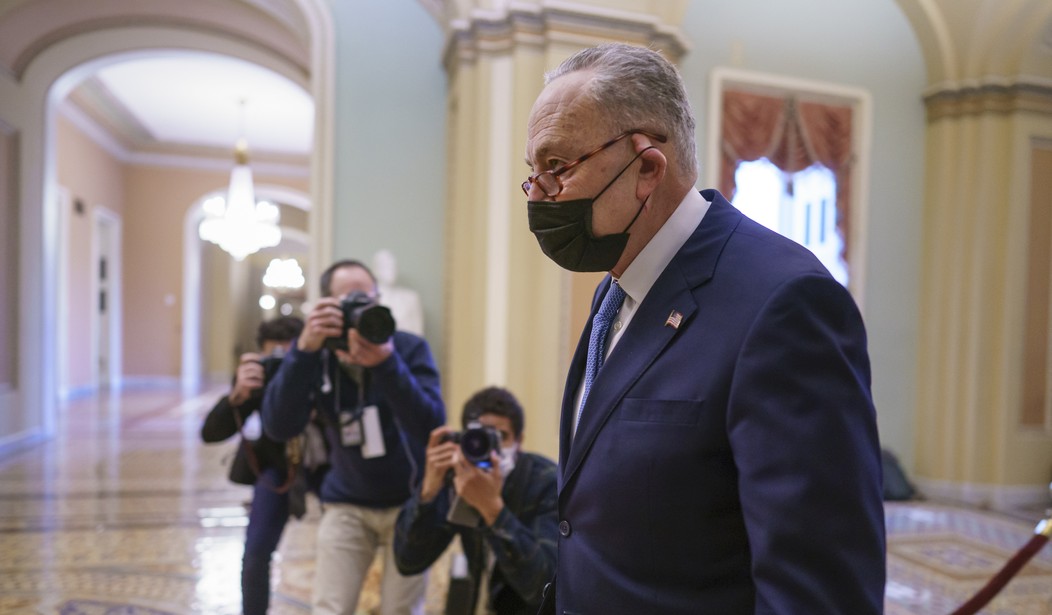Senate Majority Leader Chuck Schumer says that the Senate will vote on Monday for a House-passed bill that would fund the government through early December and suspend the debt limit until 2022.
But not a single Republican has stepped forward and said they support either measure, meaning that the bill would go down to defeat. But Schumer’s purpose is not to pass any legislation. His sole reason for bringing the bill to the floor is to embarrass Republicans.
“The resolution is the answer for avoiding numerous fast-approaching crises on the horizon. … Every single member in this chamber is going on record as to whether they support keeping the government open and averting a default, or support shutting us down and careening our country towards a default,” Schumer said.
Congress has until the end of the month to avoid a government shutdown. The House-passed bill would fund the government through Dec. 3. When Congress will need to raise or suspend the country’s debt ceiling to avert a historic default is less clear, but Treasury Secretary Janet Yellen has said it should be prepared to do so in October.
What comes next after Republicans block the House-passed bill is unclear.
In fact, what comes next is perfectly clear: Democrats are going to have to bite the bullet and use the reconciliation process to raise the debt limit and fund the government. They have the votes. They just don’t want to take responsibility for it.
One possible scenario is decoupling the debt limit issue from the continuing resolution to keep the government running. If that were done, Republicans may be convinced to sign on to a funding package that would keep the lights on until early December.
Republicans are trying to force Democrats to increase the debt ceiling as part of their $3.5 trillion spending bill, even though Democrats helped them suspend the debt ceiling under then-President Trump.
That’s true, except Trump wasn’t trying to ram a $3.5 trillion hyperpartisan spending package down the throats of Democrats and force them to take responsibility for an increase in debt that Republicans had no part in.
Sen. John Thune (S.D.), the No. 2 Senate Republican, indicated that they were waiting to see what Democrats do after the failed vote on Monday. He predicted that Democrats would turn to a short-term continuing resolution that doesn’t include the debt limit.
“I think that play is mainly in the Dems court,” Thune said. “We think they pivot pretty quickly to Plan B. “
“Plan B” has its own minefields to negotiate. If the Democrats acknowledge defeat on coupling the debt limit with government funding, the Republicans will be able to drive a hard bargain to avoid the potential catastrophe.
It’s a “potential” catastrophe because no one really knows what a default on the U.S. national debt would look like. The reality will be far different from the theoretical notion of default. In the real world, markets would respond according to how individuals perceive the crisis. Will they see it as political gamesmanship? A sign of future trouble?
One way the crisis will not be perceived is that the United States will be unable to pay its bills. That would be a silly notion, which is why world markets might flinch at default but settle down almost immediately.
Still, default would not be a desirable outcome for either side or for the “full faith and credit” of the United States government.










Join the conversation as a VIP Member